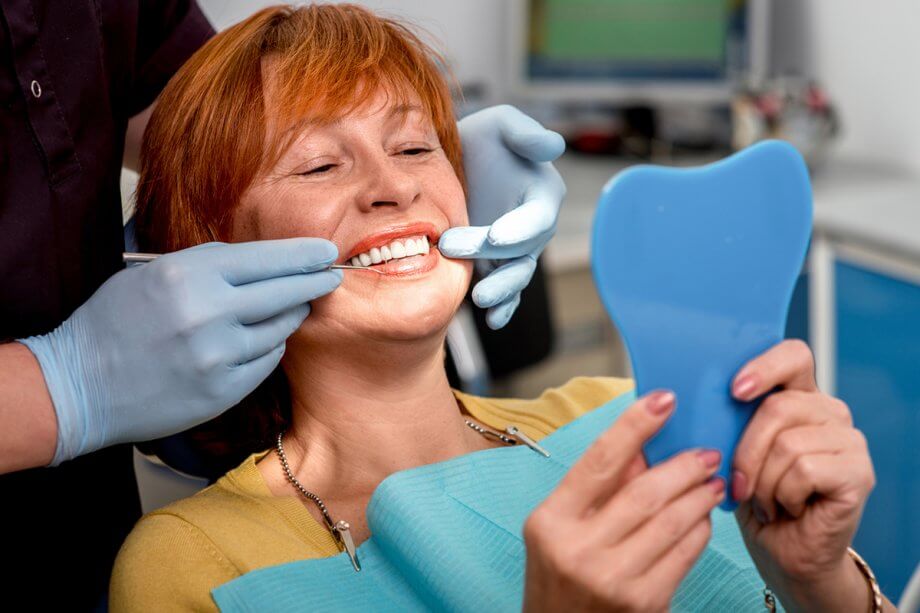You've probably heard about the benefits of dental implants from your dentist if you’re missing teeth, but it’s also our job to educate patients on the downsides of implants. Only once you understand both the advantages and disadvantages can you make the best decision for your oral health needs. Here’s what you need to know about the pros and cons of dental implants.
What Are Dental Implants?
Dental implants, unlike dentures and bridges, address the consequences of tooth loss both above and below the gum line. In a standard implant-based restoration, there are three different pieces: a dental implant (the post or screw that is implanted into the jaw), a restoration (a crown, bridge, or denture), and an abutment piece that connects the implant and the restoration. (There are some types of dental implants that attach the restorations directly to the implant, too.)
Dental implants are a long-term solution for replacing the roots of missing teeth. They result in a strong bite and a more youthful appearance by preventing bone loss in the jaw and providing a stable base of support for restorations.
Advantages of Dental Implants
For most patients, the advantages of dental implants outweigh the disadvantages. We recommend dental implants because:
Dental implants last a lifetime.
While dental implants are an investment in both money and time, they have a very high success rate, and for the majority of patients, they are a permanent solution for missing teeth. The restorations that attach to your implants may need to be replaced at some point, but with good care and maintenance, the implants themselves can last a lifetime.
Dental implants are easy to care for.
While different types of implant-supported restorations have differing levels of maintenance, for the most part, their oral hygiene requirements will be similar to those of your natural teeth. Brush twice a day for two minutes, floss at least once a day, and visit the dentist every six months for a comprehensive oral evaluation and dental cleaning.
Dental implants prevent bone loss in the jaw.
This has already been mentioned, but it is worth repeating. There is no alternative treatment option that preserves bone mass in the jaw. Jawbone loss makes your bite weaker, your other teeth can become compromised, and you may experience facial collapse, which causes a prematurely-aged appearance.
Disadvantages of Dental Implants
In some cases, the disadvantages of dental implants outweigh the advantages, especially if you have medical concerns that make surgery difficult. You may decide against getting dental implants for the following reasons:
Dental implants may require supplemental procedures.
Tooth extraction is one of the most common procedures required to prepare for dental implants, but if you have a tooth that needs to be removed for implants, it will almost certainly need to be extracted for a denture or bridge, so this shouldn’t be much of a concern. On the other hand, you may need bone grafting or a sinus lift before implant surgery if your teeth have been missing for a long time. These procedures increase the cost of getting dental implants and the length of the dental implant process; if you have a medical condition that affects your ability to heal after surgery or leaves you vulnerable to infection, you may decide that these additional procedures are not worth the risk.
Dental implants are expensive.
Dental implants are more expensive than dentures and bridges because they replace the tooth above and below the gum line. Unfortunately, dental insurance rarely covers the entire cost of dental implants, which means you may not be able to afford dental implants out of pocket. We’re happy to discuss payment options with you during your consultation to help make dental implants fit into your budget.
Dental implants require surgery.
Getting dental implants is a more invasive process than getting a bridge or denture since it requires oral surgery. We may conclude that the risks of dental implant surgery exceed the possible benefits if you have health issues that put you at a higher risk for complications or infection.
Learn More About Dental Implants
Are dental implants right for you? Contact us today at 505-821-2111 to schedule an appointment for a consultation with Dr. Steel.

